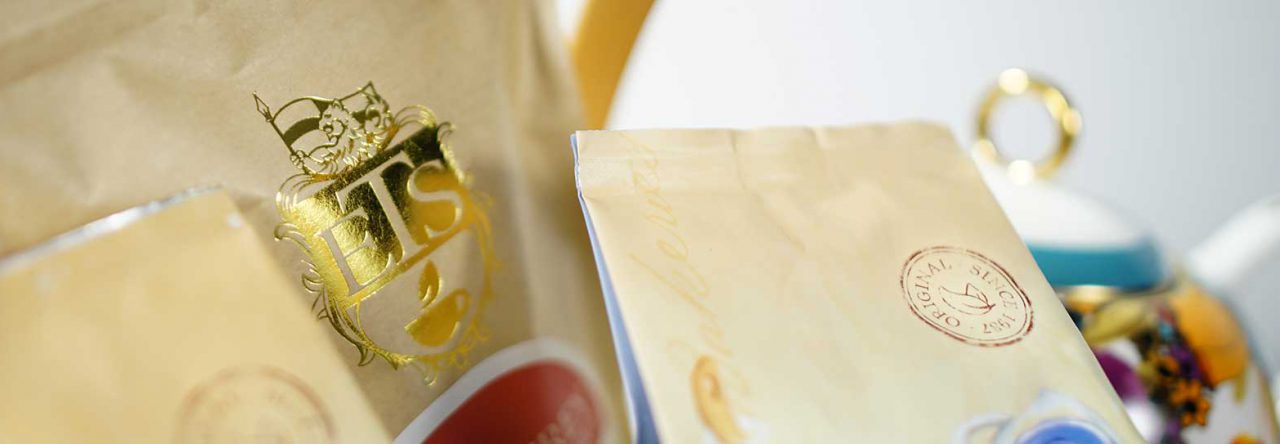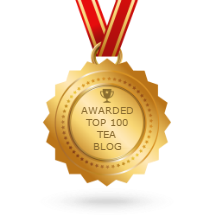
The Merriam-Webster Dictionary defines “argot” as “an often more or less secret vocabulary and idiom peculiar to a particular group.” Read on for a few examples of argot specific to tea and check out The A-Z of Tea Types here.
Agony of the Leaves
A fanciful description of what happens to tea leaves when hot water is added.
Bodhidharma
An ancient Buddhist monk who is said to have grown angry after falling asleep while meditating and cut his eyelids off. Where they landed tea plants sprang up.
Camellia sinensis
The botanical name for the species of plant from which tea is derived.
Dust
Powdery residue left over from tea processing. The least desirable grade of tea.
Estate
One of several terms referring to a place where tea is grown. Used in the phrase single-estate, which refers to tea that hasn’t been blended with other varieties.
Fannings
Small pieces of tea left over from the processing stage. Similar to dust but considered to be a grade higher.
Gaiwan
Traditional Chinese teaware consisting of a small porcelain bowl with a lid. Tea is typically prepared in a gaiwan using larger amounts of leaf, shorter steeping times and a large number of infusions.

Herbal Tea
A wide-ranging term applied to beverages that don’t contain any leaves from the Camellia sinensis plant. Also known as a tisane.
Iced Tea
A beverage that probably dates from the nineteenth century. Popular in the United States, where as much as eighty percent of all tea consumed is of this type.
Japan
After China, the next nation to have developed a significant tea culture. Produce black tea in modest quantities, but best known for green tea.
Kenya
An African nation that is one of the world’s top tea producers, after China and India. Best known for black tea.
Lu Yu
An ancient Chinese scholar who wrote one of the earliest and most durable books about tea – The Classic of Tea.
Monkey
According to a rather fanciful legend, monkeys were once used to pick tea leaves in places that were not readily accessible to humans.
Nepal
A small Asian country located between northeast India and southwest China. Known for black tea not unlike that produced in the nearby Darjeeling region of India.
Orwell
As in George Orwell, noted English author whose essay A Nice Cup of Tea is still considered influential.
Pekoe
Not specifically a type of tea but rather a tiered system used for grading purposes, particularly with respect to black tea.
Qi
Life energy or force. Also known as chi. Thought to be positively influenced by some types of tea.
Red Tea
A term sometimes used in China to refer to black tea. May also refer to rooibos, or redbush, an herbal beverage that contains no real tea.
Samovar
An apparatus that’s especially popular in Russia, the samovar steeps and stores concentrated tea. It is also used to dispense hot water to dilute the tea before serving.
Theanine
A compound in tea that’s been found to promote relaxation and reduce stress.
Urasenke
Perhaps the best-known of the three major schools (also Omotesenke, Mushakōjisenke) of the Japanese tea ceremony.
V
Insert your own “V” tea term here. It’s not as easy as you might think.
Wuyi
A mountain range in northern Fujian province that’s renowned for being the home of Wuyi oolong tea.
Xishuangbanna
A region in Yunnan province that’s home to the so-called six famous tea mountains and is said to produce some of the world’s best puerh tea. Thought by some to be the point of origin for tea plants.
Yixing
A region in China that’s known for the clay used to make Yixing teapots, first produced centuries ago and still being made today.
Zhulan
A Chinese green tea, to which flowers of the Chloranthus spicatus plant have been added for flavoring.
© Online Stores, Inc., and The English Tea Store Blog, 2009-2014. Unauthorized use and/or duplication of this material without express and written permission from this article’s author and/or the blog’s owner is strictly prohibited. Excerpts and links may be used, provided that full and clear credit is given to Online Stores, Inc., and The English Tea Store Blog with appropriate and specific direction to the original content.



Leave a comment